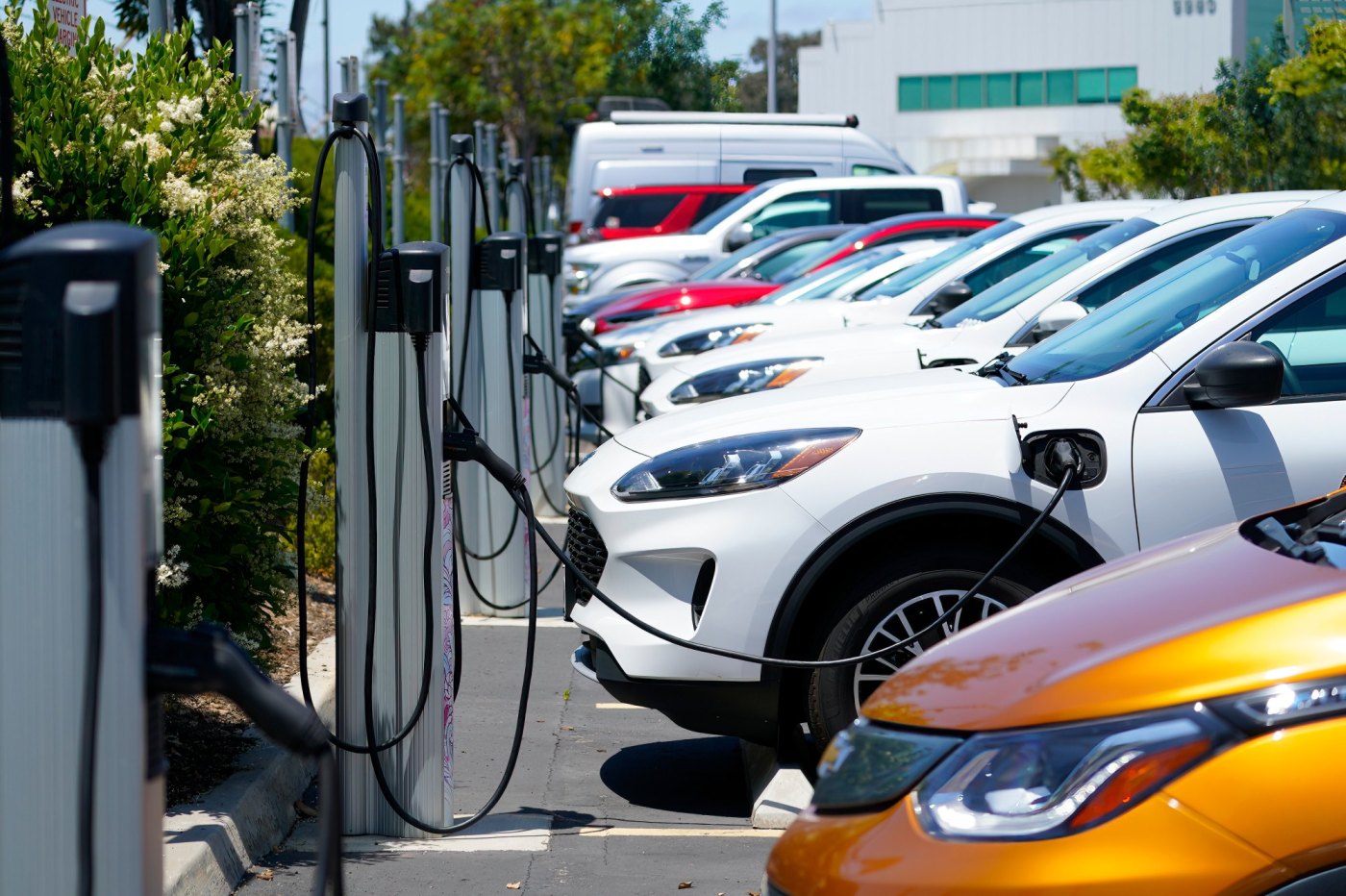A recent executive order issued by the Trump administration has raised a cloud of uncertainty about the growth of electric vehicle adoption. So if you are considering buying an EV, should you wait until things sort themselves out, or should you take the plunge ASAP?
Ivan Drury, director of insights at Edmunds.com, says it depends on what each consumer is looking for.
“It’s kind of dicey out there right now,” he said.
RELATED: Tesla sales decline in California with Model 3 plunging 36%
On President Donald Trump’s first day returning to the White House, he issued an executive order called “Unleashing American Energy.”
The directive included provisions targeting initiatives to boost the sales of EVs, including:
Seeking the elimination of a federal tax credit of up to $7,500 for consumers who buy EVs.
Revoking the Biden administration’s goal to have EVs make up half of new car sales by 2030.
Instructing federal agencies to freeze disbursements for programs to build EV charging stations.
Whether the particulars of the executive order will become permanent remains to be seen.
For example, changing the tax credit would require the assent of both houses of Congress. But with Republicans holding a 53-47 majority in the Senate and a razor-thin majority in the House of Representatives, the fate of the tax credit is up for grabs.
So if grabbing the tax credit is a major reason why you’re considering buying an EV, Drury says you may want to buy or lease that vehicle now.
“If you are risk-averse in any way, shape or form, yes, pulling ahead your sale is probably the easiest thing you can do to guarantee you’re going to get that (federal tax credit) — and any other current incentives that are available,” Drury said.
According to the U.S. Internal Revenue Service, a tax credit as high as $7,500 can be applied to buying new plug-in EVs or hydrogen fuel cell vehicles.
But to qualify, there are some restrictions, such as income thresholds. For example, the gross income for a married couple filing jointly cannot exceed $300,000 during that tax year.
RELATED: As EV vehicles get heavier, they’re also getting more dangerous, safety experts say
In addition, the manufacturer’s suggested retail price of the vehicle cannot exceed $80,000 for vans, SUVs and pickup trucks or $55,000 for other EVs.
A host of other factors can determine your eligibility or potentially reduce the tax credit so it’s a good idea to check the IRS website and ask your potential dealer what you qualify for. The federal government also offers tax credits of up to $4,000 for buying used EVs.
Drury said some car lots still have 2024 EV and plug-in hybrid models sitting around so you could get a bargain from dealers looking to get rid of their old inventory.
“I would say do it sooner than later,” he said,
Related Articles
As EV vehicles get heavier, they’re also getting more dangerous, safety experts say
Tesla sales decline in California with Model 3 plunging 36%
Walters: California’s carbon crusade faces resistance due to its real world impact
Will the batteries that power electric buses stall California’s zero-emission mandates?
Letters: Halting U.S. foreign aid hurts our nation and the world
On the other hand, the executive order’s freeze on EV charging infrastructure may be a caution light for some.
“If you assume that 90% of the time you will charge (the EV) at home,” or if you don’t expect to use publicly available chargers to keep your vehicle running, Drury said any potential disruption of the build-out of charging infrastructure may not affect you much.
“But for anybody who’s testing the waters or reliant on the idea that there will be an expansion (of charging stations), tread lightly,” he said.
Another thing to keep in mind is that California recently phased out the state’s Clean Vehicle Rebate Program.
The program used to give rebates of up to $7,500 for low- and moderate-income residents who bought or leased EVs, but the program closed down for new applicants in November 2023.
Right after Trump’s election last November, Gov. Gavin Newsom said he would propose bringing back the rebate program if the federal tax credit is eliminated.
“Consumers continue to prove the skeptics wrong — zero-emission vehicles are here to stay,” Newsom said in a statement Nov. 25.
But reviving the rebate may not be a slam dunk.
Early budget projections from the nonpartisan Legislative Analyst’s Office estimated California may face a $2 billion deficit this year. And an already tight budget figures to get tighter due to the amount of state spending going toward battling the deadly series of fires in the Los Angeles area and helping residents rebuild.
Even without the Clean Vehicle Rebate Program, a host of other EV incentives are available, including special rates to home charging that’s offered by California utilities, including San Diego Gas & Electric.
A website from the California Air Resources Board called DriveClean.ca.gov, offers a rundown. Go to the “Search Incentives” tab and enter your ZIP code to see what’s available.












